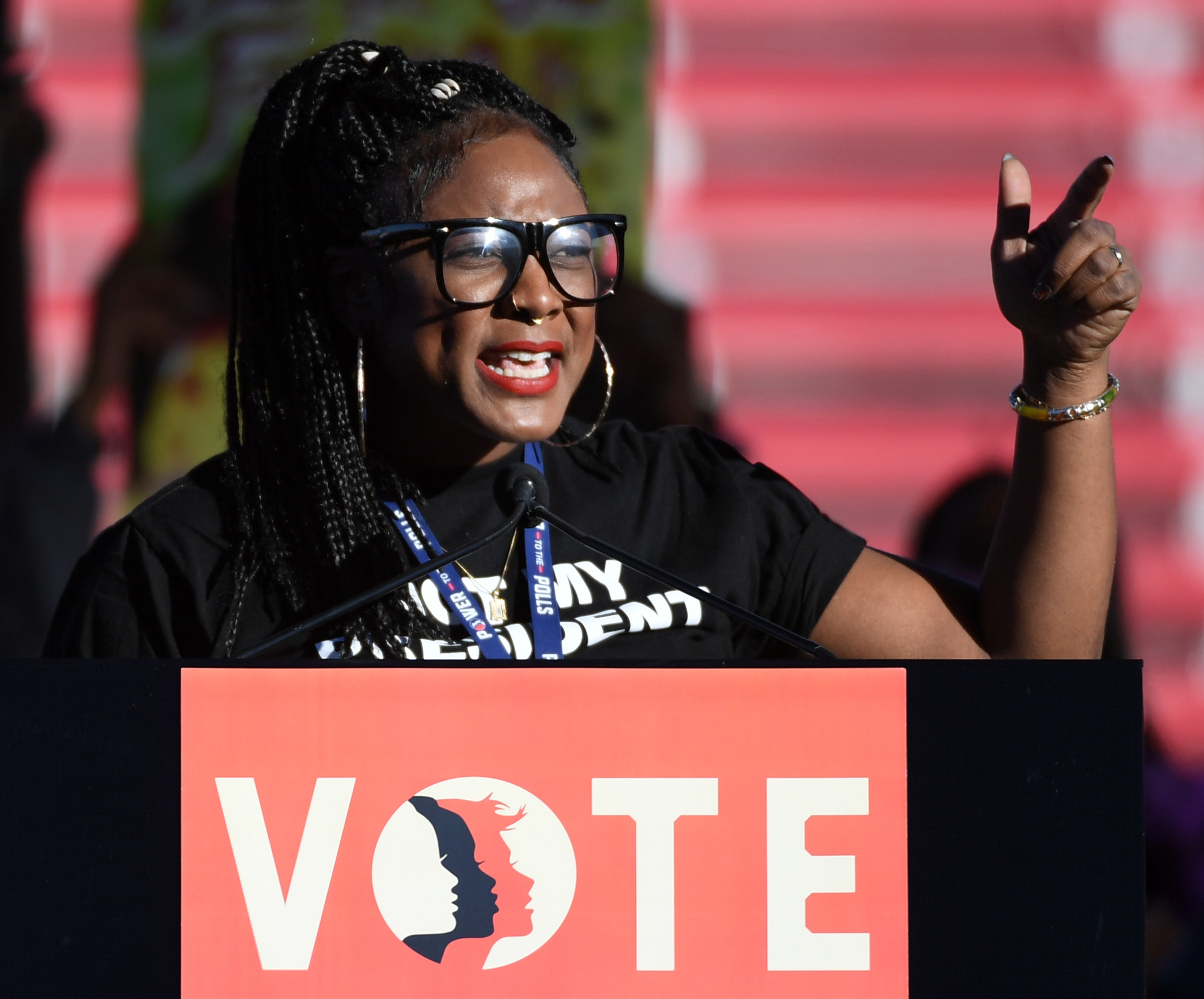
Source: Ethan Miller / Getty
From one of the same voices that has advanced the movement for Black lives, a brand new initiative is being born — The Black Futures Lab.
Founded by Black Lives Matter co-founder Alicia Garza, the project will work with Black people to transform their communities building Black political power and changing the way that power operates — locally, statewide, and nationally. They are creating programs and strategies that will help bring policies with Black communities in mind to the forefront.
“I think that too often Black people are spoken about and spoken for but rarely spoken to,” Garza told CASSIUS. “I think that part of what we’re trying to do with the Black census project is talk to a whole lot of Black folks so that we can really represent the breadth of what Black folks are experiencing from the mouths of Black people.”
The organization is partnering with Center for Third World Organizing, Color of Change, Demos, Socioanalítica Research and the Tides Foundation. The Black Census Project is the lab’s first initiative and aims to survey 200,000 Black people from diverse communities across the country to target the issues that disproportionally affect them. Beginning in March, they will be training 100 Black organizers across 20 states to knock on doors and survey.
One of the priorities of the survey is to reach Black folks across experiences and intersections, such as culture, sexuality, gender identity, and more.
“We really want to be able to project how the Black community is very complex, nuanced, and diverse,” Garza told CASSIUS. “The 20 states we’re visiting have the highest concentrations of Black immigrants, Black people who have been incarcerated, Black queer people, and Black people living in rural areas. We want to reach folks that might not be on the Internet, they may not want to put their information on the Internet, we want to make sure that they’re represented as well.”
Garza said that one of the ideal goals of the Black Census Project is to fill a database they’ve created to make it easier to pinpoint the exact issues affecting specific Black communities in different pockets around the country.
“People will be able to search what Black people in Wichita, Kans. think about criminal justice reform,” she said. “You’ll see that there will probably be a large breadth of responses, which tells us a little about how our communities are thinking about the issues that are most prevalent in our neighborhoods.”
She also said this data will serve as a foundation for a Black public policy institute that they’ll be launching in August called “Black to the Future.”
“What we’re trying to make sure that what is happening is that legislation and policy is being shaped by the experiences that Black folks are actually having,” Garza said. “Not the experiences that people who are not Black want us to have.”
It’s about time that Black folks voices were counted in the policies and legislation that directly affects them. Hop over to take the census by August 1.
















